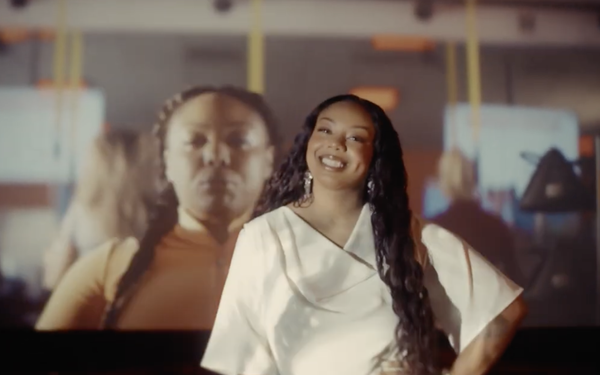
Orangetheory is easing off the hard-science
pitch and tapping into something more personal. The studio fitness brand — known for its blend of cardio, strength, and heart-rate tracking — is returning to a marketing approach it
hasn’t used in years: putting real members at the center of a broad campaign.
It’s a shift driven by changing expectations, especially among women,
who make up about 80% of the company’s membership. David Chriswick, senior vice president of brand and communications, tells Marketing Daily women still respond to the
brand’s structured, tech-enabled workouts, but they’re also craving something beyond performance metrics. Women love the scientific, tech-driven approach, he says. But they are equally
— and perhaps even more — keen to be reminded of the emotional and psychological power that comes from fitness transformations.
advertisement
advertisement
The new campaign highlights strength — physical and mental —
over the old fitness tropes of leanness or punishment. That reframing matters as consumers sort out what fitness even means in a landscape shaped by economic
anxiety, TikTok workout trends, and the arrival of GLP-1 drugs. The medications have reset expectations around weight loss, and Chriswick acknowledges the competitive pressure. But he sees an opening:
“One of the biggest concerns with these drugs is losing muscle, so strength building is a top concern.”
That dovetails with another cultural shift
happening among women. As menopause and perimenopause gain overdue visibility, more women are turning to strength work as a protective measure for long-term health. Orangetheory “over-indexes in
the pre- and perimenopausal age groups,” Chriswick says, and is working with academics to produce more education about those needs.
The brand is also
experimenting with offerings that meet the moment. It’s piloting OTF Strong, a strength-focused class format, and just partnered with Hyrox, the fast-growing hybrid endurance event that mixes
running with functional training, a smart move as competitive “everyday athlete” culture accelerates.
The campaign is running across CTV, digital
video, paid social and OOH, timed to hit holiday stress, year-end burnout, and the predictable New Year’s resolution surge.
Chriswick says most people join Orangetheory after burning out on big-box gyms and wanting something more structured and welcoming. “It’s really all about
community,” he says. “In-person workouts aren’t going away.”